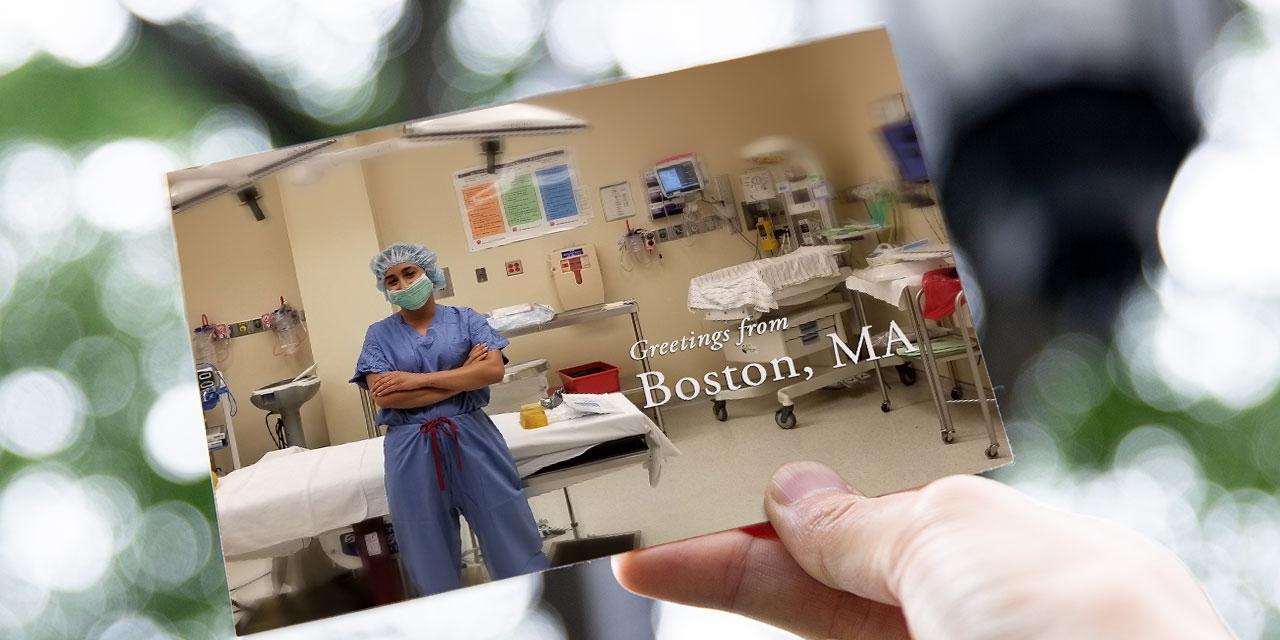Cecilia Barreto ’20, 2019 Biomedical Research & Health Internship with Brigham and Women’s Hospital, Boston, MA

This story was originally published in Wellesley's Daily Shot on July 23, 2019.
This week’s Dear Wellesley postcard comes from Cecilia Barreto ’20, who is working as a research intern at Brigham and Women’s Hospital’s Center for Infertility and Reproductive Surgery thanks to Career Education’s biomedical research and health internships program.
Dear Wellesley,
Greetings from Boston! My name is Cecilia, and I am a rising senior studying psychology at Wellesley. While I’m not too far from our beautiful green campus, I feel like I am a world away at Brigham and Women’s Hospital, working under the supervision of Penny Wang ’14. Brigham and Women’s is a well-known teaching hospital where a lot of groundbreaking medical research happens daily.
As a research intern in vitro fertilization (IVF) at the Center for Infertility and Reproductive Surgery, one of my primary responsibilities includes independently recruiting patients for research studies that focus on nutrition. This has been an exciting task because every patient is unique. The patients who come into the IVF clinic all have their own stories to tell and are in a vulnerable position because of the treatment that they are about to receive.
I’ve learned that at its core, medicine is all about creating an environment where relationships can be fostered and grown. When I talk to patients, my first responsibility isn’t to overwhelm them with too much information but to instead create a sense of trust. Once this has been established, I explain to them more about the survey study that they can choose to participate in. This experience has taught me that to provide exceptional care in the medical field, you need to provide compassion as well as medical excellence.
Another part of my experience is that I get to shadow physicians, residents, and nurses throughout the day. Something that I’ve been able to watch thus far is a cesarean section. Women who undergo IVF treatment are at a higher risk for complications during their pregnancies, such as hemorrhaging during a C-section. When a patient is hemorrhaging, Penny will run blood tests through a device called ROTEM, which indicates which type of blood transfusions to give the patient. The data from ROTEM can then be used in a clinical research setting. Being present in these moments has been transformative for me because I get to see how medical histories show themselves in operating rooms and the tremendous value events such as hemorrhaging have for completing groundbreaking medical research.
The first day I walked into Brigham and Women’s I was nervous to find out whether the medical field would be right for me. Since then, the way I view the medical world has been drastically challenged, and that has made me question the unique practice of holistic medical care. What if in medicine we were to think more about the patient’s experience rather than just their symptoms? At first, I thought the answer to this question would be quantitative, but over the past couple of weeks, I’ve learned that it’s not. We try so hard to define someone’s life or experience as a set of data points, but I’ve learned that to become a good caregiver, you must look past those and see the patients for who they really are. I plan to carry this revelation on with me as I keep exploring my calling into the medical world. This internship was exactly what I needed to make me more hopeful for my future in medicine, and I am very thankful to Wellesley for this amazing opportunity!
Cecilia Barreto



